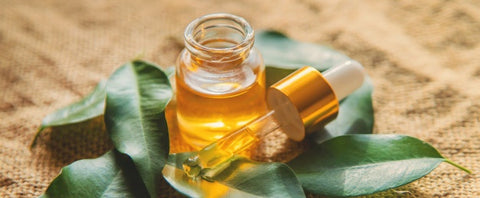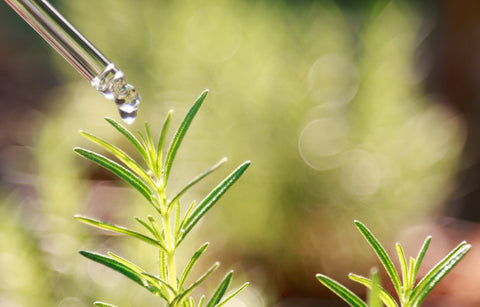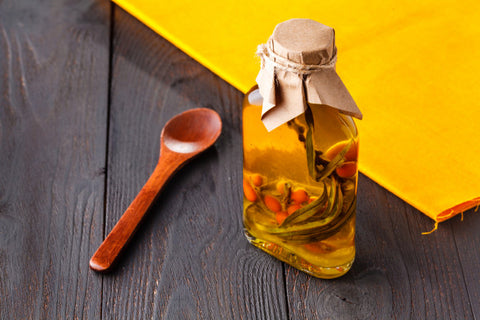What are botanicals and why do I need them?
AUTHOR - DR. DAVID JACK
Botanicals might be the latest buzzword in skincare, but they’re nothing new Cleopatra used black cumin seed oil as a beauty treatment. And for hundreds of years, calendula has been used as a poultice for skin-healing. Whether its to address pigmentation changes or the signs of aging, botanical-powered skincare products help keep complexions looking their best.
Botanicals are nature’s goodness. A botanical extract is made from a plant’s roots, flowers, bark, or leaves. The plant parts are dissolved using a special solvent which helps free up some of the natural ingredients within the plant. The solution is then separated from the parts of the plant which are insoluble. The extract can further be separated from the liquid to produce a powder. This liquid or powder can finally be dissolved into skincare or cosmetic product to help reap benefits through topical application. If the process is performed correctly, a pure extract can provide many natural properties of the plant in a concentrated form.
Botanicals have become the future of the skincare industry. Popular ingredients like rosehip and grapeseed oil have been proven effective over time as many have been used in cleansing and moisturizing routines for generations. But new botanicals are coming to the market each year, and are present in all kinds of treatments.
Most botanicals have antioxidant benefits, as many of the plants they come from were able to thrive in direct sunlight being exposed to UV light. Therefore, protection against free radicals is a strong benefit. But botanical extracts can also have benefits to acne, oily skin, hyperpigmentation, and wrinkles. And such is the concentration of botanicals, only a small percentage is actually needed to see maximum benefits.
Here are just a few:
Aloe Vera:

Aloe Vera (Aloe Barbadensis leaf juice) has been used medicinally for several thousands of years in many cultures. Scientists have discovered over 200 nutritional substances in Aloe Barbadensis leaves, including 20 minerals, 20 amino acids, 12 vitamins, and active enzymes. It can soothe skin and serve as an anti-inflammatory, with burn healing effects, scar reducing and wounds healing properties. Aloe protects the skin from UV damage. The herb contains aloin, which can block up to 30% of the sun’s ultraviolet rays when applied to the skin’s surface. This is why it is a key ingredient in All Day Long! and Good Night!
Chamomile:

Chamomile (Chamomilla Recutita (Matricaria) Extract) contains essential oils and flavonoids (antioxidants) used by the Egyptians, Greeks, and Romans for centuries to treat asthma, colic, inflammations, nausea, skin diseases, and cancer.
It has also been used in teas as a mild sleep aid, and treatment of fevers and colds. Recent scientific research suggests it possesses powerful anti-inflammatory, anti-bacterial, anti-fungal, and anti-allergenic properties. Chamomile helps reduce inflammation while increasing skin repair by purifying, refreshing, and neutralizing free radicals and other skin irritants.
Green Tea:

Green Tea Extract (Camellia Sinensis Leaf Extract) contains catechin (antioxidant), known as epigallocatechin (EGCG) which exhibits antibacterial and anti-inflammatory properties. Green tea will help reduce inflammation in the skin and fight off free radicals that cause damage to the cells and tissues in the body. Green tea’s antibacterial properties are capable of also killing the propionibacterium acnes responsible for acne. It can also be used as a mild cleanser and skin exfoliant. This is why it is the main ingredient in our Good Night! cream.
But for sensitivity and skin redness you can also try Licorice (Glycyrrhiza glabra) which contains anti-inflammatory properties; or oats (Avena sativa) to relieve dryness and inflammation.
Tea Tree Oil:

Tea Tree Oil is extracted from the leaves of the Australian Melaleuca Alternafolia tree, this has been proven to be effective in killing acne bacteria (propionibacterium acnes) when applied topically, and has often been used as a natural alternative to benzoyl peroxide.
Rosemary Oil:

Rosemary Oil (Rosmarinus Officinalis Leaf Oil) has anti-microbial, antiseptic, astringent, antioxidant, and tonic properties which means that it can soothe or treat dry or oily skin, eczema, inflammation, and acne. Effective for all skin types, this rejuvenating oil can be added to soaps, face washes, face masks, toners, and creams to achieve firm yet hydrated skin that appears to have a healthy glow that is free of unwanted marks. This can also be found in our Good Night! cream.
Sea Buckthorn Oil:

Sea Buckthorn Oil (Hippophae rhamnoides) is a rich source of vitamin C that contains healing properties
Evening Primrose Oil:

Evening Primrose Oil (Oenothera biennis) can have significant anti-inflammatory and emollient properties
Jojoba Oil:

Jojoba Oil (Simmondsia Chinensis) enhances barrier repair properties and skin’s healing ability.

